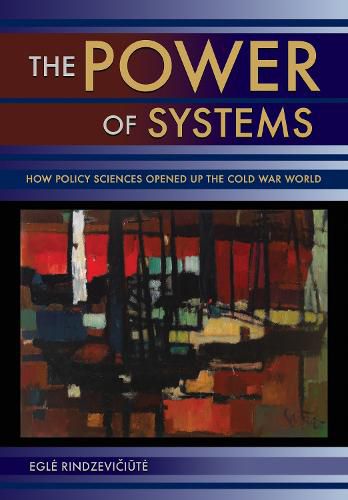Readings Newsletter
Become a Readings Member to make your shopping experience even easier.
Sign in or sign up for free!
You’re not far away from qualifying for FREE standard shipping within Australia
You’ve qualified for FREE standard shipping within Australia
The cart is loading…






In The Power of Systems, Egle Rindzeviciute introduces readers to one of the best-kept secrets of the Cold War: the International Institute of Applied Systems Analysis (IIASA), an international think tank established by the US and USSR to advance scientific collaboration.
From 1972 until the late 1980s, IIASA was one of the very few permanent platforms where policy scientists from both sides of the Cold War could work together to articulate and solve world problems. A rare zone of freedom, communication, and negotiation.
East-West scientists co-produced computer simulations of the long-term world future, using global modeling to explore the possible effects of climate change and nuclear winter. Their concern with global issues also became a vehicle for transformation inside the Soviet Union. The Power of Systems explores how computer modeling, cybernetics, and the systems approach challenged Soviet governance by undermining the linear notions of control on which Soviet governance was based and creating new objects and techniques of government.
$9.00 standard shipping within Australia
FREE standard shipping within Australia for orders over $100.00
Express & International shipping calculated at checkout
In The Power of Systems, Egle Rindzeviciute introduces readers to one of the best-kept secrets of the Cold War: the International Institute of Applied Systems Analysis (IIASA), an international think tank established by the US and USSR to advance scientific collaboration.
From 1972 until the late 1980s, IIASA was one of the very few permanent platforms where policy scientists from both sides of the Cold War could work together to articulate and solve world problems. A rare zone of freedom, communication, and negotiation.
East-West scientists co-produced computer simulations of the long-term world future, using global modeling to explore the possible effects of climate change and nuclear winter. Their concern with global issues also became a vehicle for transformation inside the Soviet Union. The Power of Systems explores how computer modeling, cybernetics, and the systems approach challenged Soviet governance by undermining the linear notions of control on which Soviet governance was based and creating new objects and techniques of government.